
23 Mar, 2021
Book on Anand Panyarachun shows why a “New Normal” may prove elusive for Thailand and Thai Tourism
Bangkok – As Thailand charts a recovery from the Covid-19 catastrophe, the hills are alive with calls for a “New Normal”. They have been heard before. Exactly 30 years ago this month (March 1991), the Thai military appointed Mr Anand Panyarachun, today one of the country’s most recognised statesmen, to craft a “New Normal” after a faux pas coup. Revisiting the events of 1991-92 provide a good checklist to see if the latest deja vu pursuit of a “New Normal” will fare any better.
Published in 2018, just four years after yet another coup in 2014, the book “Anand Panyarachun and the Making of Modern Thailand” is a riveting chronicle of the challenges of leading, running, building and rescuing a country in which history regularly repeats itself. As the primary objective of the 556-page book is to help Thai people learn the lessons of those successes and failures, I re-read it to see what lessons Thai tourism, the worst impacted economic sector, can learn in attempting to convert yet another crisis into an opportunity.
|
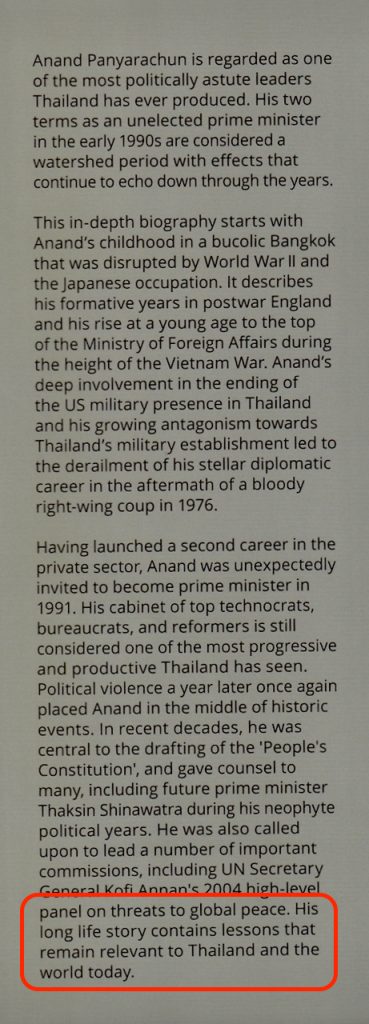 |
While pressing to reopen borders and refill their beds and seats, Travel & Tourism executives are well aware that “Brand Thailand” can sell only if the operating environment is stable. Therein lies the problem. The local, regional and international operating environment is highly unstable, and likely to remain so long after the Covid-19 crisis abates. There is a real threat that history will repeat itself, and that any tourism recovery will prove short-lived.
Over many decades, Thailand’s multiple crises have brought out the best and worst in its people. They have also underscored the role and value of trustworthy, impeccable leadership in delivering the “Thailand” product. Like any mechanical or physical form, the hardware, software and operating system have to be well-designed and functioning in total sync. Thailand is blessed with good hardware (natural geographical location, rich natural resources, superb built-up infrastructure) and a well-balanced operating system (the Buddhist way of life and a relaxed, tolerant culture) but the application software is plagued by viruses.
As long as vaccines against those viruses remain beyond reach, there can and never will be a “New Normal.”
Of the many individuals who have given it a try, one personality does stand out. Says the book’s author, veteran Bangkok-based journalist Dominic Faulder, “There are few individuals alive who have interacted so directly with the many influential people who shaped the Thailand that emerged from the 20th century.” Indeed, Anand Panyarachun was the right man in the right place at the right time, even though neither of his two tenures were the result of a democratic process. He had a clear mandate but very little time. In fact, the second mess he was enlisted to clean up was far worse than the first. The generals who saw him as a part of the solution the first time around themselves became part of the problem the second time around. If the book is designed to identify “ways forward for Thailand’s struggling political system,” those contradictions, along with the ongoing extinction of valued leadership, do not augur well for the future.
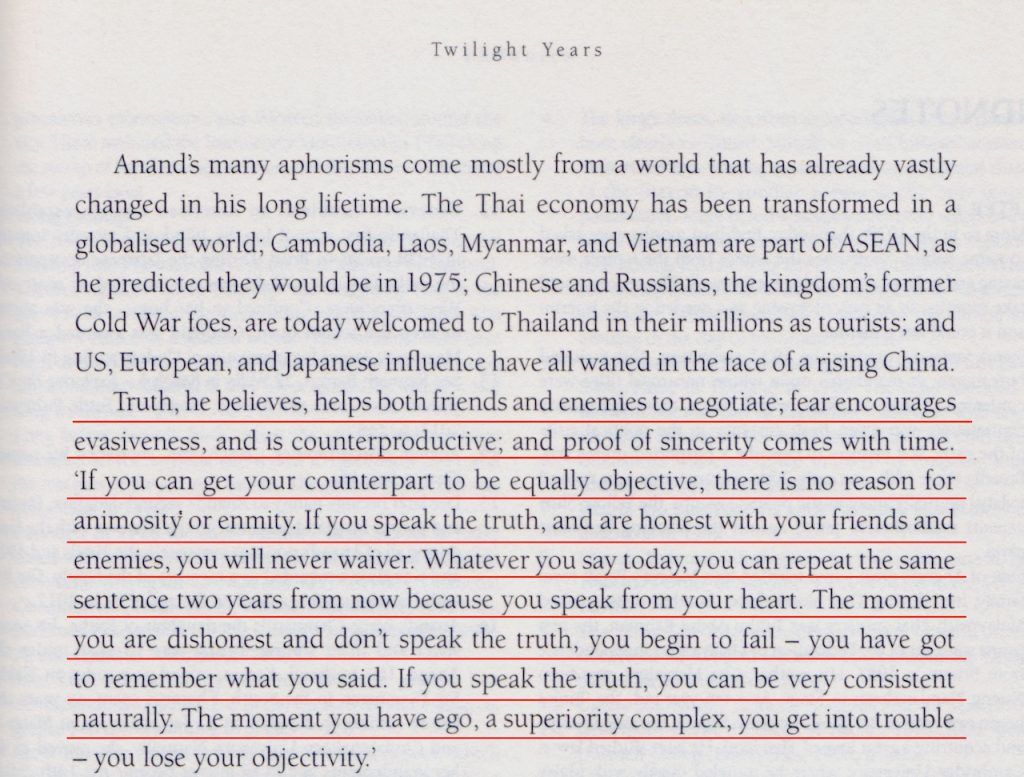
For Travel & Tourism, 1991 was an important year. The raging global AIDS crisis was posing a mortal threat to the industry. But the Travel & Tourism private sector was desperate to sweep it under the carpet. Here, too, the advantages of an untainted leader became clear. Putting the long-term interests of Thailand ahead of the short-term interests of Thai tourism, Mr Anand gave the anti-AIDS campaign his full support. If short-term pain was required to deliver long-term gain, so be it. Visitor arrivals fell in 1991, not because of the anti-AIDS campaign but because of the geopolitical ripple effect of the U.S. invasion of Iraq.
What did Travel & Tourism learn from that? Nothing. Shunning debate and critical thinking was the norm then, and remains so today. The “New Normal” in Travel & Tourism is only measured in terms of bean-counting, asset value, expenditure and profitability.
As Thailand’s leading Travel & Tourism historian, I am gratified to note that Mr Anand recognised the importance of historians in contributing to solutions and peace-building. Under the Thaksin administration, he was appointed head of the National Reconciliation Commission to bring peace to South Thailand. Because he knew little about the situation there, he gave added importance to broadening and deepening the context of the dialogue. He says:
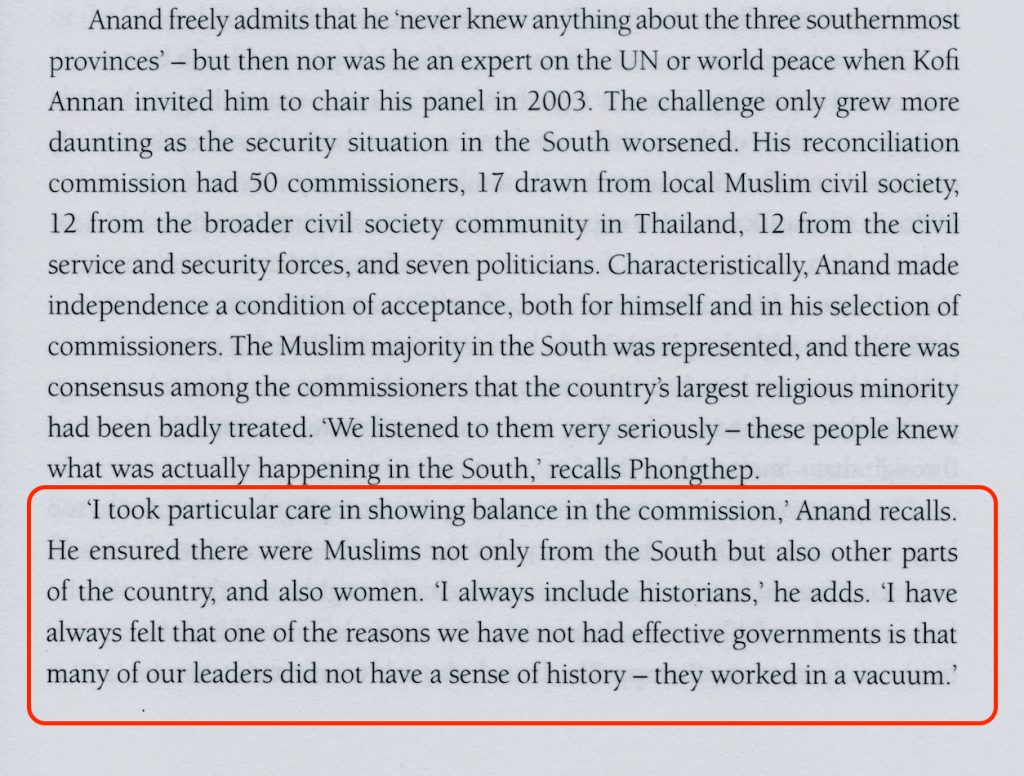
Hundreds of insights like this make the book a ready-made template for a sweeping SWOT analysis and deep surgery of Thailand and its tourism sector. Unlike any other, Travel & Tourism is an economic force, a social and cultural integrator, and, if well managed, a protector of the environment. Yes, Thailand still has many assets but one vital asset has sadly faded: the wise, benevolent and highly revered leadership of His Majesty King Rama IX the Great. One of the greatest global leaders of his generation, the late monarch’s role in navigating Thailand through repeated “New Normals” is clear to see.
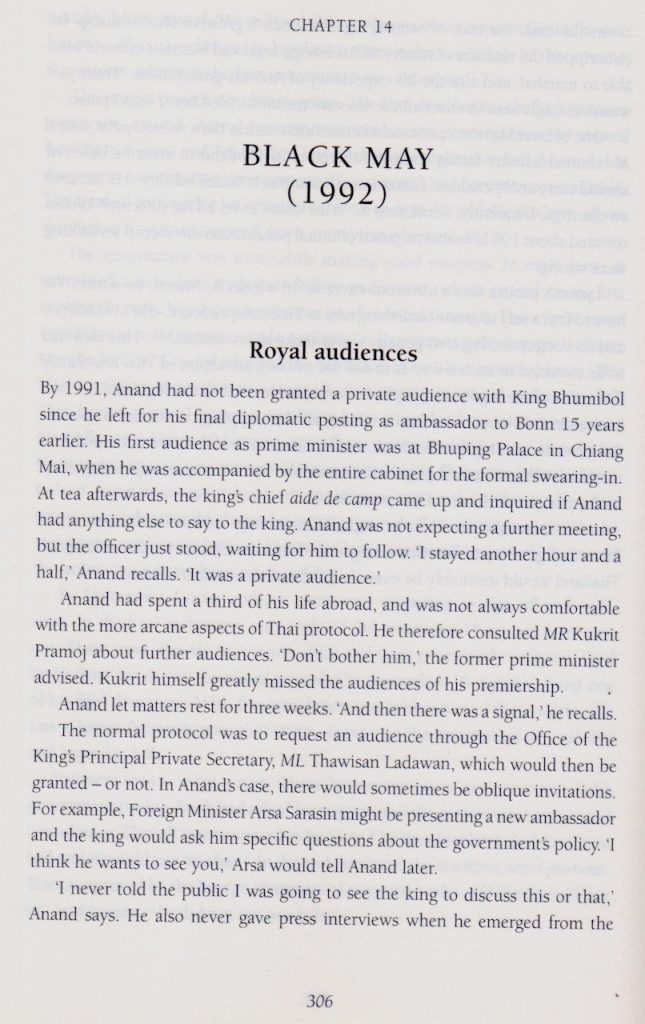
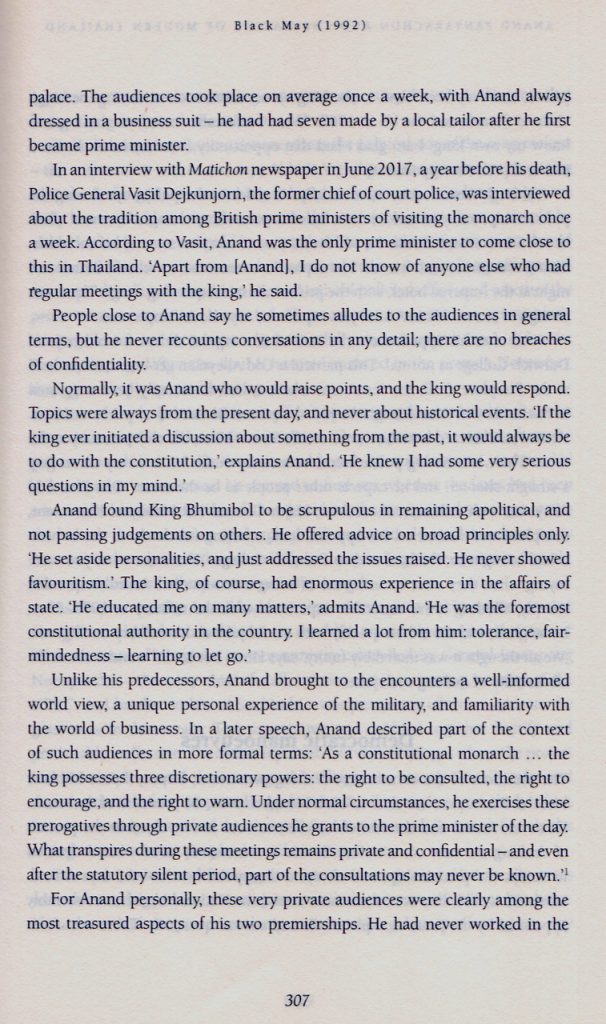
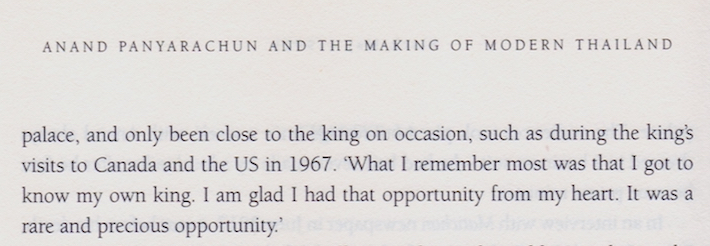
The book makes fascinating reading for those who lived through that fractious period. The detailed interactions between dozens of characters would put even a work of fiction to shame. Every chapter contains lessons relevant to the crafting of a “New Normal”. Because Thailand has never had a leader of equivalent family pedigree, education and local, global and international experience in both public and private sectors, this historical record of Mr Anand’s people-management and problem-solving approach deserves detailed study in corporate offices, universities and think-tanks.
The best place to start would be at the end, with Mr Anand’s classic speech…
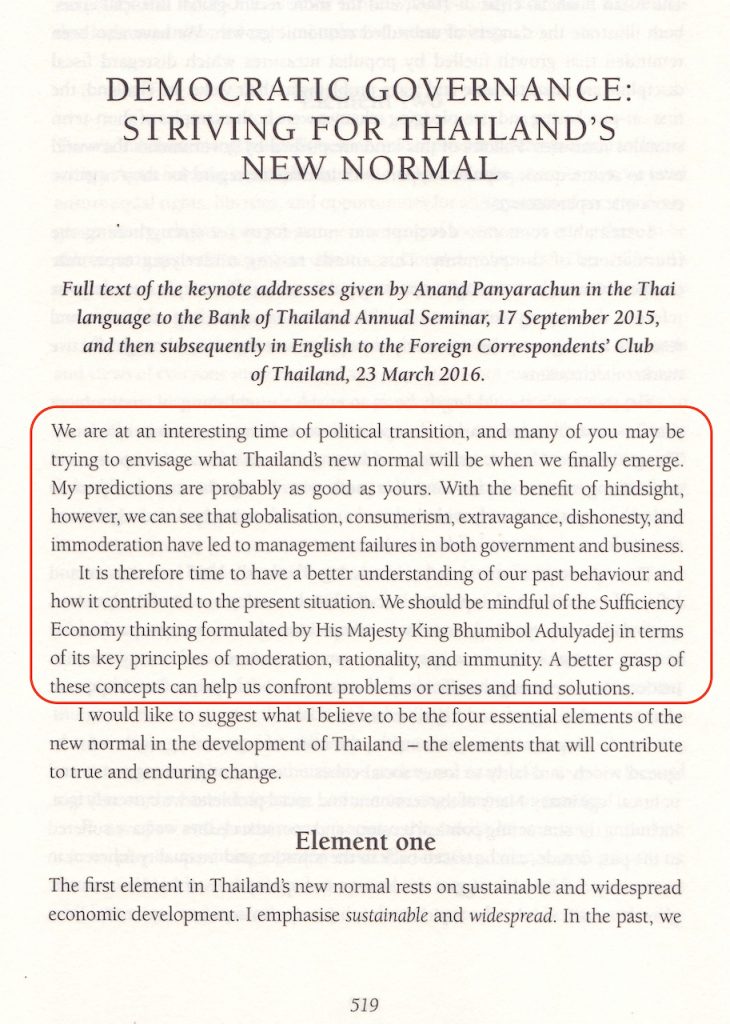
Here are images of selected pages to whet the appetite. The book is available on Amazon and at Asiabooks, Kinokuniya, Open House (Central Embassy) and the FCCT. Foyles and Waterstones in UK.
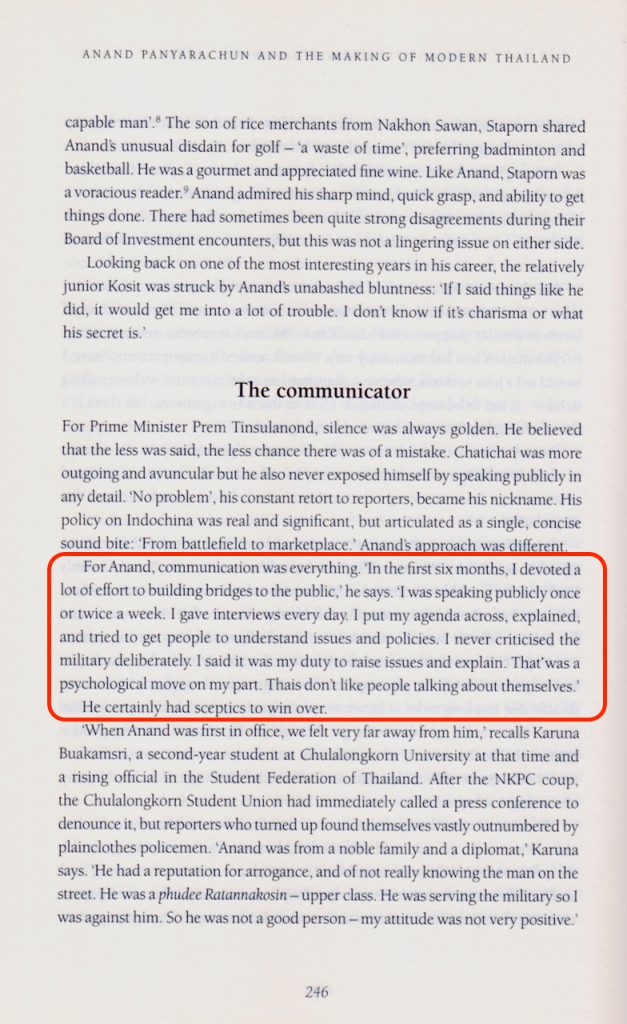
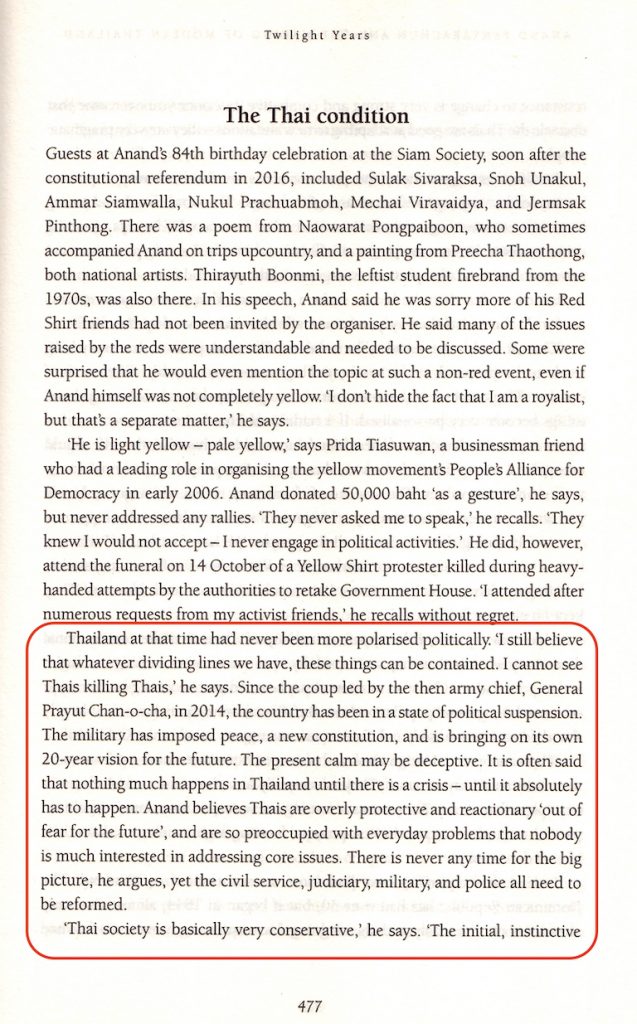
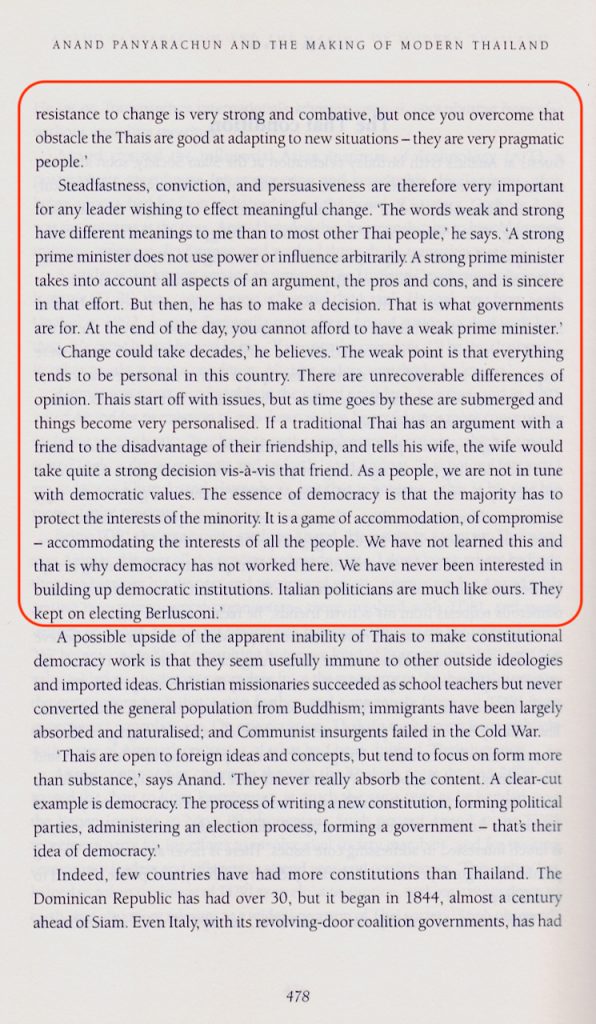
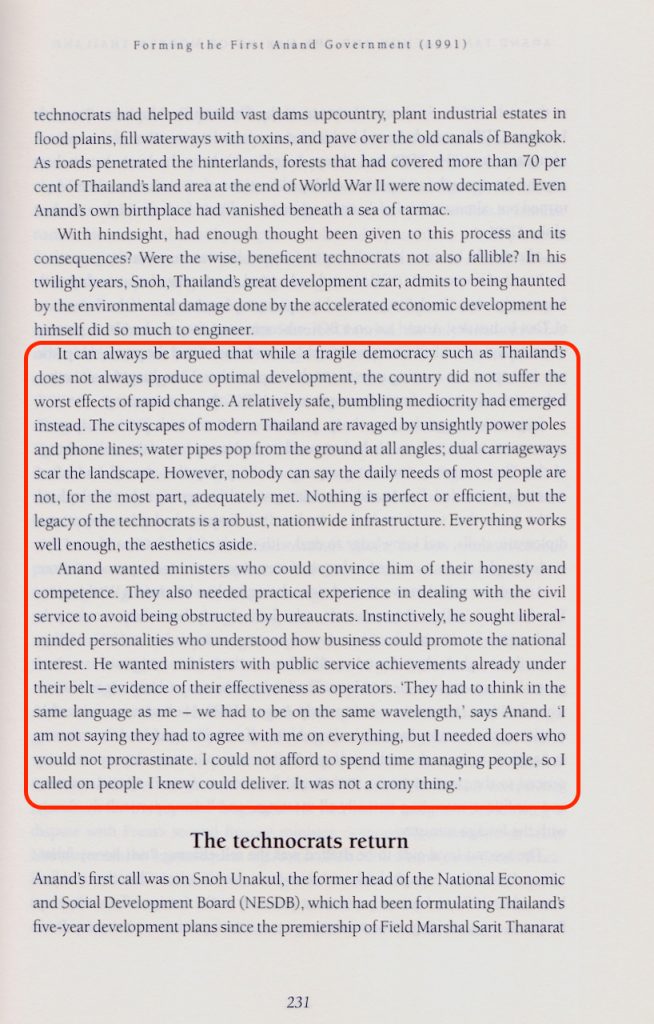
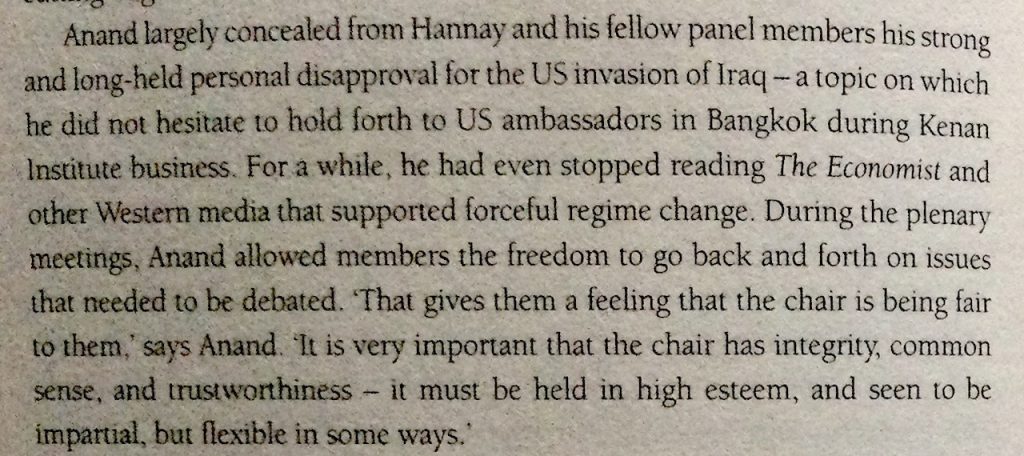
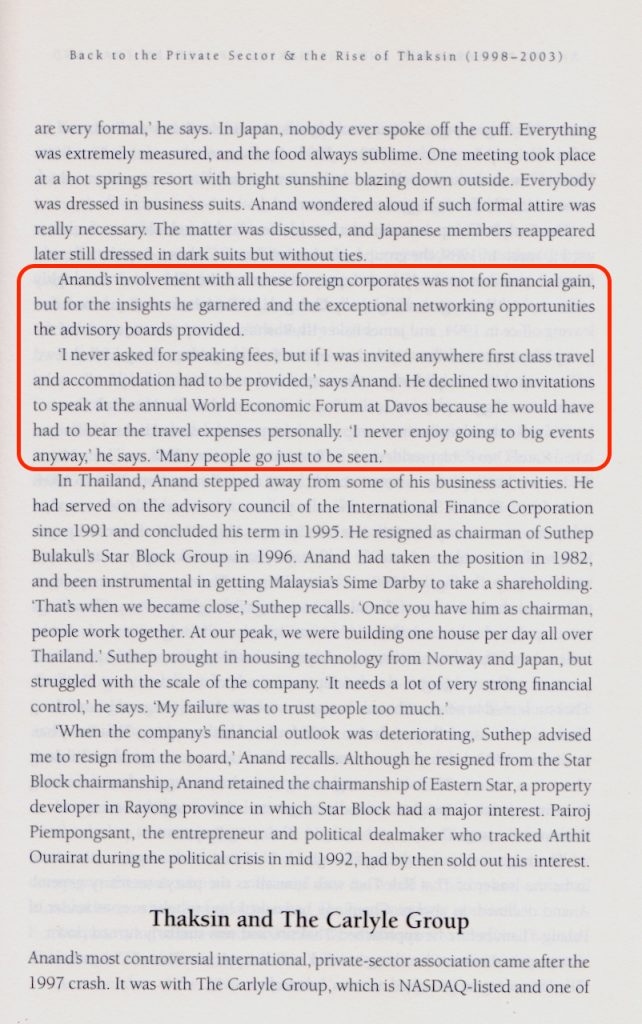

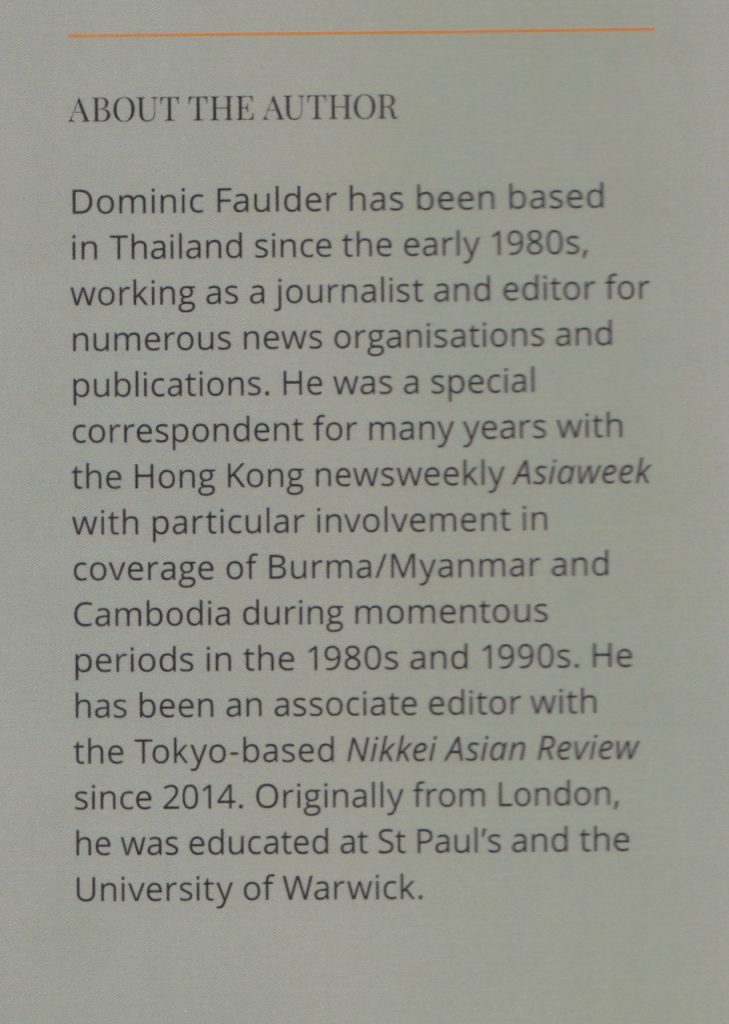

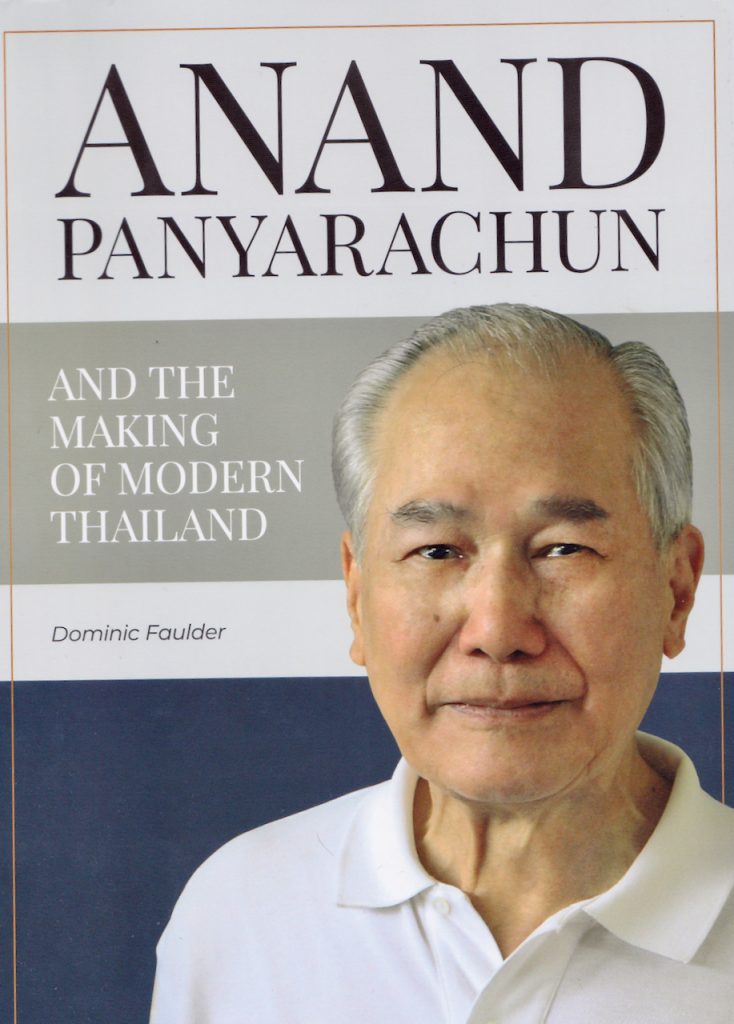
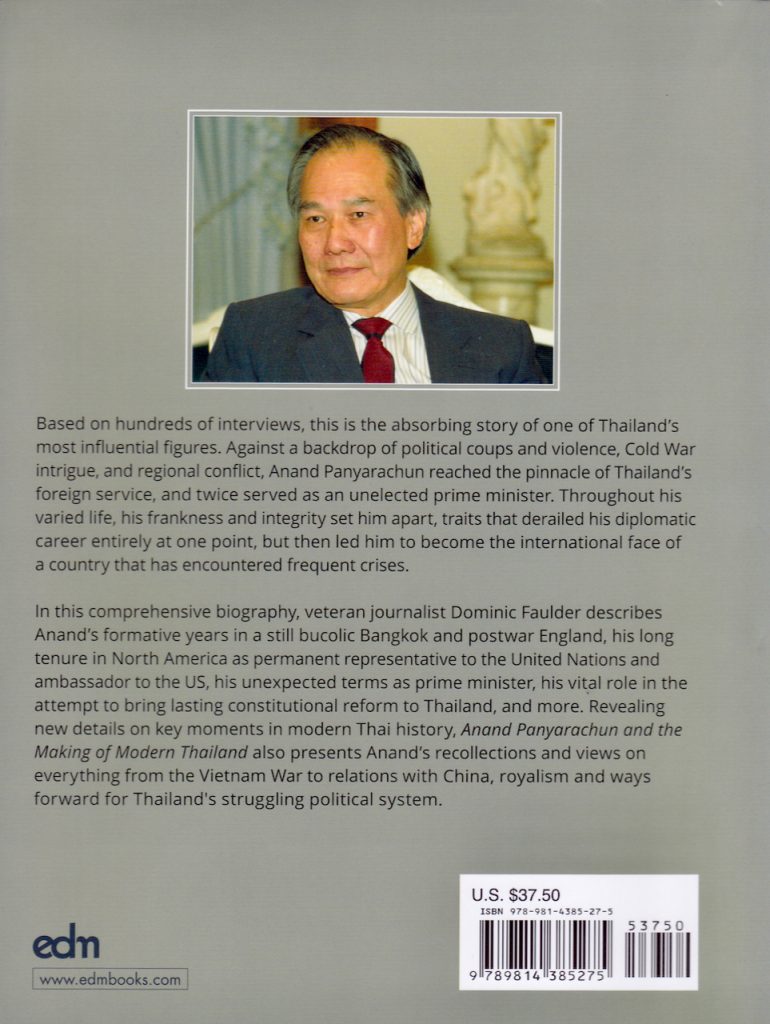


Liked this article? Share it!